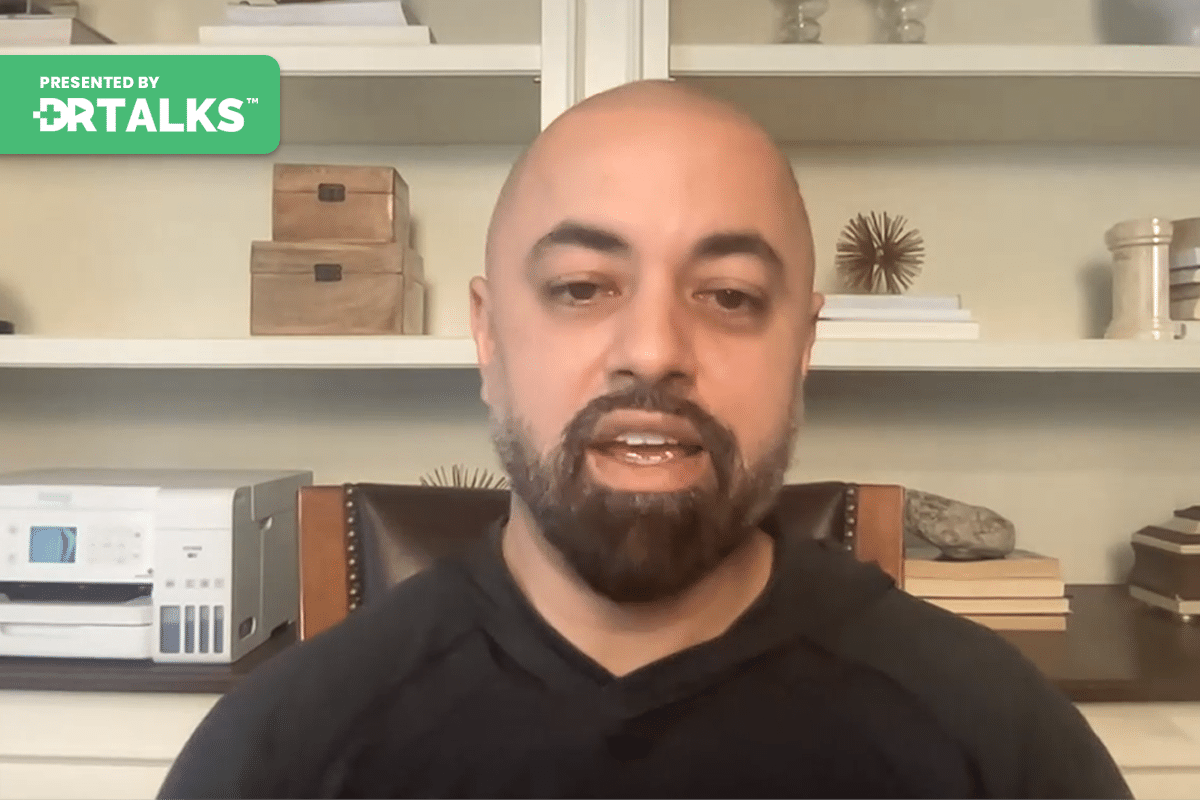They couldn’t get along in teams. Relationships were difficult. What we found with them was that their serotonin was completely dysregulated. What does that mean? That means that their ability to manage their mood and react as appropriate for what’s going on was difficult. Their brain was oversensitive to stimulus and couldn’t prioritize what was going on. Second thing that we saw was that there had to be or their noradrenaline response was somewhat deleted. The idea you see here from one copy they got from one parent, I should say, they got the full copy from one parent, their deleted for a paragraph, not just a gene snip or variable, an entire paragraph, a chunk of that gene is missing. So the instruction is somewhat broken. Now let me tell you what all this means. When your adora2B is dysregulated and you have a deleted portion of your noradrenaline response, adrenaline is somewhat dysregulated, which means you’re more likely to bind negative stimulus, trauma, pain. This person had a less ability to go through negative stimulus and functionally move on as if it didn’t happen. They actually retained the emotional stimulus, the negative emotions in this case, and it imprints into their memory. So not only are they logically remembering the information of what happened, but they’re also emotionally remembering the feeling of what happened. The next time something like that happens again, God forbid, a car accident or a fight with somebody, something that could trigger emotional stimulus. They remember exactly what it felt like and they use that feeling in future decision making.
Now, imagine trying to work on a team as this person was and bringing back their trauma from past failures and problems and trying to be functional. Now imagine also having dysregulated serotonin and experiencing that at a higher level of detail. They’re hypersensitive to stimulus. They feel it, they remember it, they use that feeling, but they also remember at a much greater level of detail, not only recall, but also the experience at a greater level of detail. They didn’t have a thing called anxiety. They didn’t need anxiety medication. What they had was actually a superpower. This deep ability to experience empathy and emotional recall and to experience the world from that emotional perspective and not just the logical perspective. They also had the ability to see things at a hyper level of detail and be prone to whatever stimulus is around them. and be able to react to it. Now if you put that in the right context, that makes this person a great healer, for example, somebody that you may want working with you to make you feel better because they see every little detail. Everything is important to them. They empathize and feel emotionally, not only experience and process logically, but this person wasn’t that in that kind of context. They worked in a team that had an administrative role, and the burden of the problems that they were experiencing kept stacking and stacking, because every time they come back to that same problem, it was somewhat like holding the grudge.
Imagine your perception being that not this again and all this detail around this, not a good experience when the people around you don’t see it that way. How the misalignment can create friction and this constant anxious experience which makes it difficult to even get to work. And that’s what this person was experiencing. We’re able to supplement. The five AGT LPR gene is what looks at the serotonin dysregulation. So, the five ACV supplement is what upregulate serotonin. We were able to very easily help them there. With added to be, there was some coaching required. They went into one of our coaching programs and we taught them the thing that was their burden was actually their superpower, and they needed to put themselves in the right place in the team. They needed to be the empathetic, emotional leader, the person that could lead the room and feel and understand, as opposed to trying to pretend that they were that logical person and just coming up with information. They started to thrive. They started to land within the profile, which is what they were born and use it to their advantage as opposed to it being a burden. It helped in many areas, relationship, work, etc. but the root cause of that anxiety that they were feeling was removed and eliminated and instead it turned into this thing that propelled them forward.
When it comes to all wouldn’t be here free of issues, whether it’s depression, addiction, burnout, whether inability to have good relationships with your spouse or your kids or not understanding your kids and how to discipline them. It’s very easy to get nuanced about the neurochemicals of the brain and what drives behavior, and then the genes that drive those to be able to predict why this person behaves the way they do, why they perceive the way they do, why you perceive them, the way you perceive them, and then align in what they’re actually designed for and allow them to thrive. And that’s what happened with this person here.










